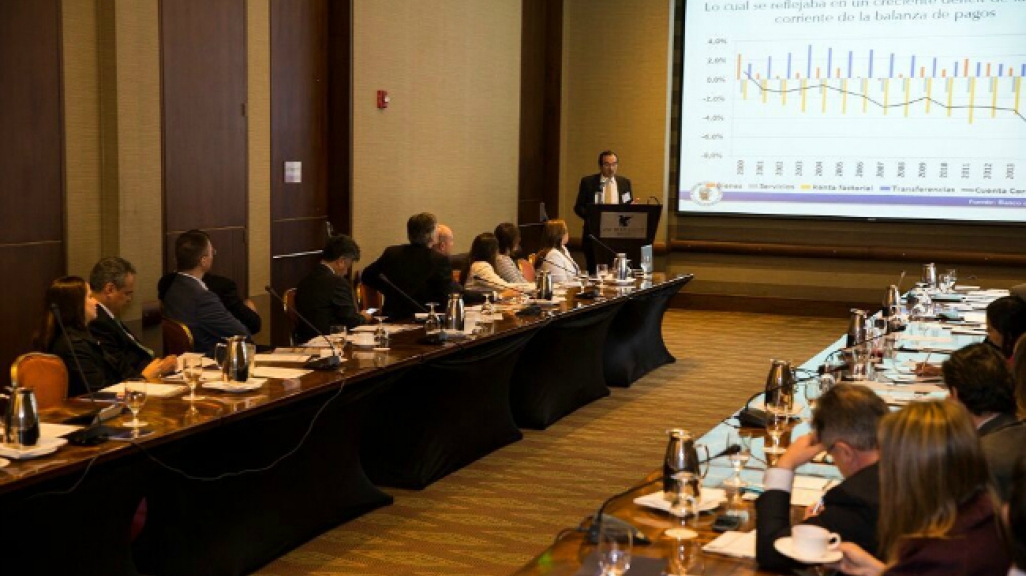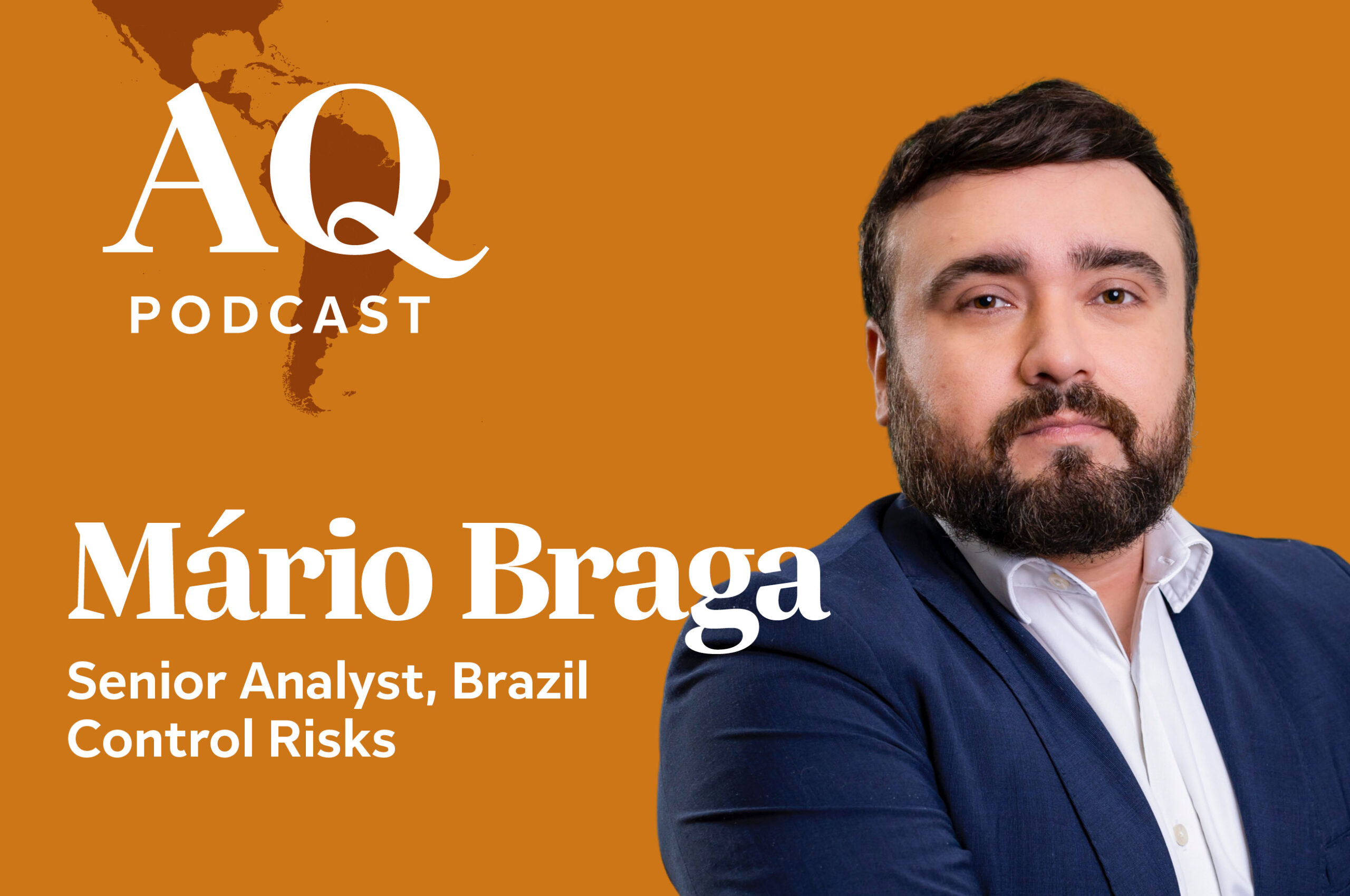Summary: CFO Forum in Bogotá
Summary: CFO Forum in Bogotá
When faced with major shocks, models stop working and leaders must rely on experience, said experts.
Key practices for hedging and efficient financial management, an optimistic view on the future of the Colombian economy, and a recommendation to financial executives to always challenge outside advisors were the main takeaways of the Council of the Americas CFO Forum in Bogotá, Colombia, on June 14.
On an introductory note, Carolina España, director representative of the CAF – Development Bank of Latin America, announced the bank’s interest in financing a productive transformation of the region. This implies supporting projects on a wide range of fields, from setting up new, nontraditional productive chains to building infrastructure projects, including smaller secondary and tertiary roads. On larger-scale endeavors, CAF has established a fund to entice pension funds to invest in road concession programs. The bank just closed a $1.4-billion fund to complete financing of fourth-generation concessions in Colombia, España said.
Best Practices on Foreign Exchange Management
Experience is more valuable than models, said Avianca’s Corporate Financing and Fleet Vice President Diana Calixto. She told the audience how the timely intervention of her team saved the company millions when it shifted its strategy from swaps to options, a move that was not recommended by any of the models used by outside advisors working for Avianca. When faced with major shocks, like the ones we had in recent months, models stop working, she warned.
Calixto recommended maintaining hedges aligned at all times with the prices set forth in annual budgets, and highlighted the importance of having a clear governance scheme for these trades. In Avianca, the Board’s Finance Committee approves and oversees general hedging policies which cover currency, jet fuel, and interest rate risks.
Upon a brief discussion of their practices, attending CFOs agreed that Board members had to be given detailed presentations on the risks of hedging operations. Oftentimes Boards are amnesic,one attendee said. They do not remember having heard that the company could stand to lose in this market.
Thinking about your strategy pays off, having a governance scheme pays off, revisiting your methods pays off, Calixto said, who concluded with one of the major takeaways of the workshop: Always challenge banks and advisors."
The Evolving Role of the CFO
The CFO has to adjust his or her role to the stage the company is in, said Merck’s Latin America CFO Jorge Ibarra during the second workshop of the event, aimed at identifying the role of the
CFO as a leader of business transformation. In an initial phase, Ibarra said, the finance director has to assure financial governance.
Clear norms and efficient practices, such as establishing shared service centers, would have to be developed and enforced at this stage. New technologies are available to make finance tasks easier. Attendees mentioned software packages that allow suppliers to input invoices directly into the company’s databases.
As the company enters an accelerated growth phase, the head of finances should become a partner for expansion of the business.
At this stage, the CFO has to avoid being placed in the position of judge and jury, Ibarra suggested. He might end up having, for instance, responsibilities for sales increases and, simultaneously, the obligation to maintain the good health of the lines of credit given out to customers.
A complementary view was offered by Colombian building company Constructora Conconcreto. Its CFO centralizes risk management, not only financial, but also risks such as environmental or social. The team follow some 80 risk indicators and reports on them periodically to the Board of Directors. The CFO is also in charge of mitigating these risks through management policies and insurance.
Colombia in 2016
The Colombian economy will grow around 2.5 percent in 2016, said Jorge Toro, chief economist of the country’s central bank, who gave a detailed account of the recent past and the macroeconomic outlooks for 2016 and 2017.
Inflation surged in 2016 mainly due to currency depreciation and an increase in food prices created by widespread El Niño draughts. As a response, the central bank tightened monetary policy by increasing its intervention interest rate to 7.25 percent from a low of 4.5 percent. The central bank expects this decision will slowly take inflationary expectations to a 3 percent long-run level. Toro believes that inflation, which currently stands at 8.2 percent, will reach 6 percent by the year’s end, and 4 percent in 2017.
On the international front, Toro believes that Colombia’s current account deficit will narrow down to 5.5 percent in December 2016. This is due to a reduction in consumption of imported goods. On exchange rates, he did not offer a forecast, but noted that in the past months there has been a strong correlation between oil prices and the price of the Colombian peso.
This summary was prepared by Latin Trade.








